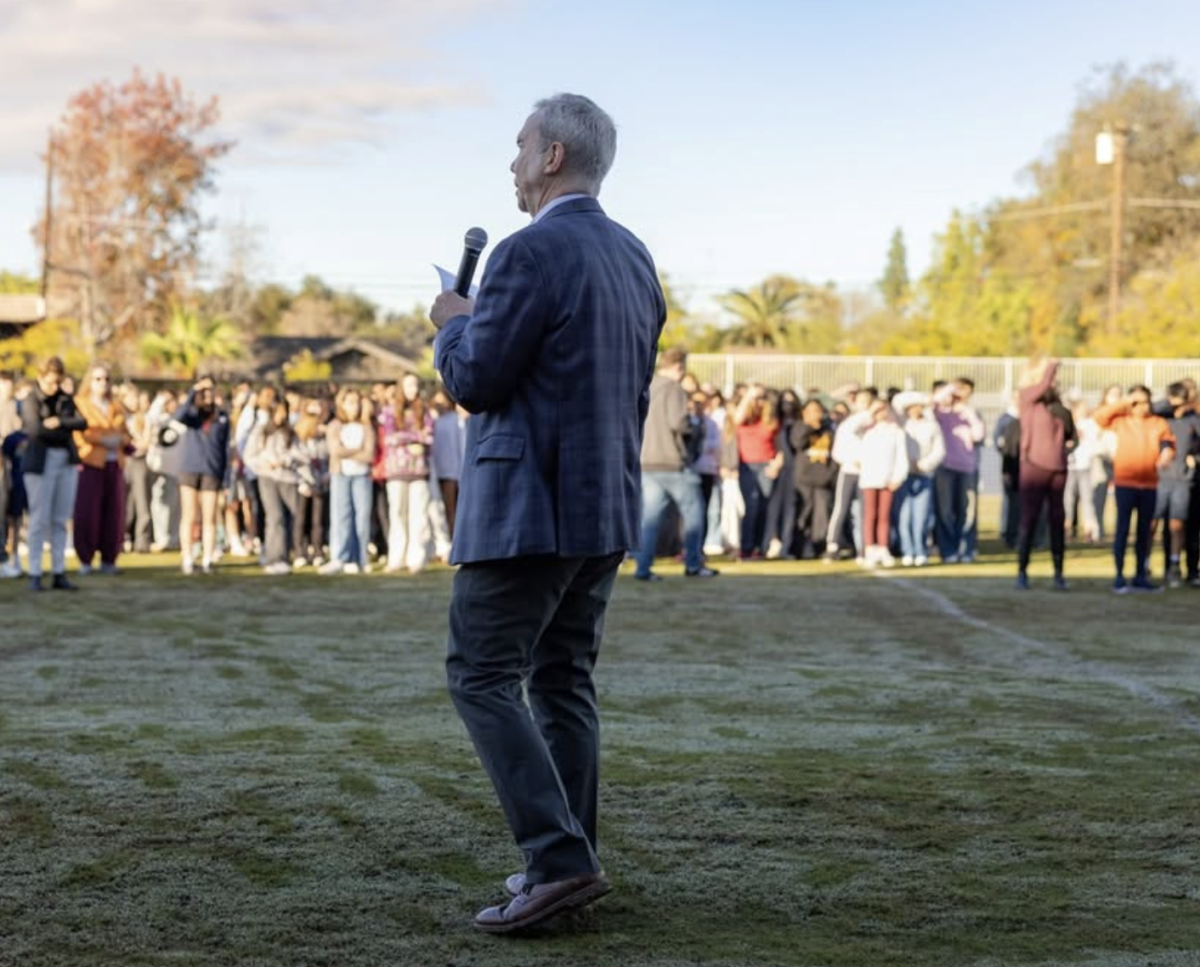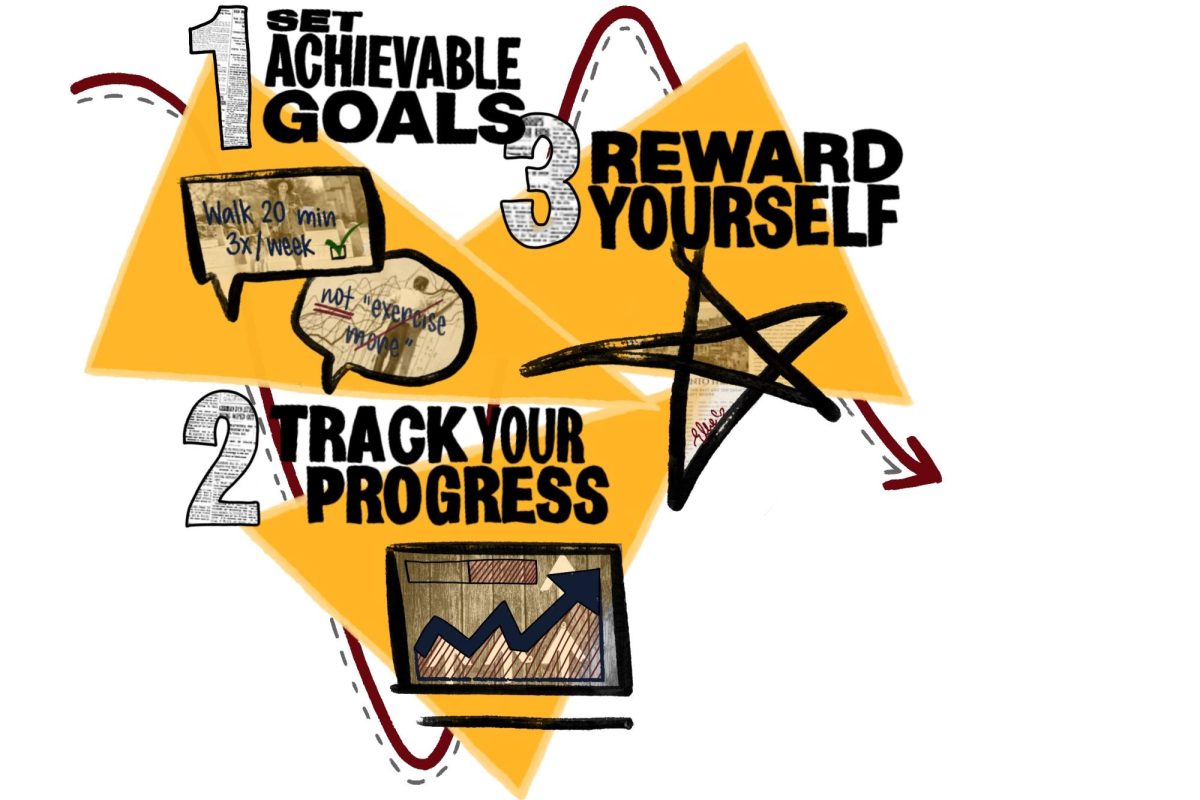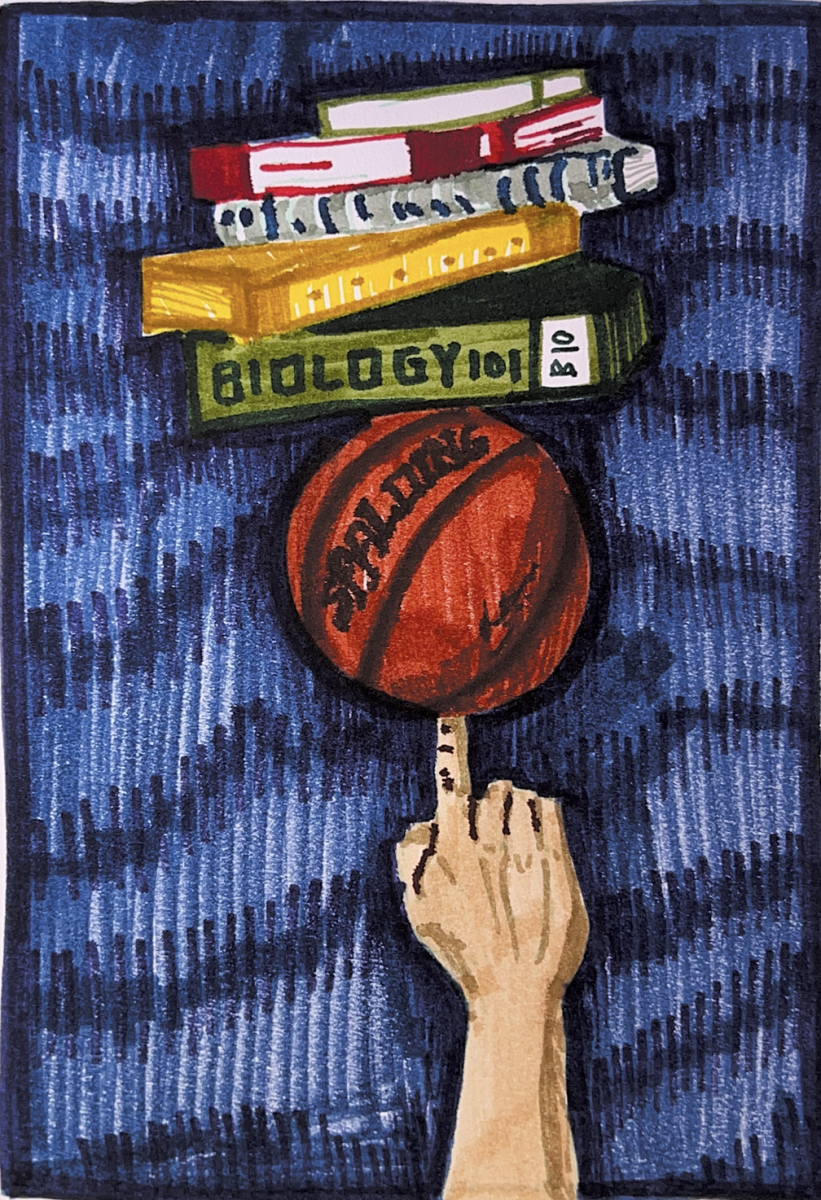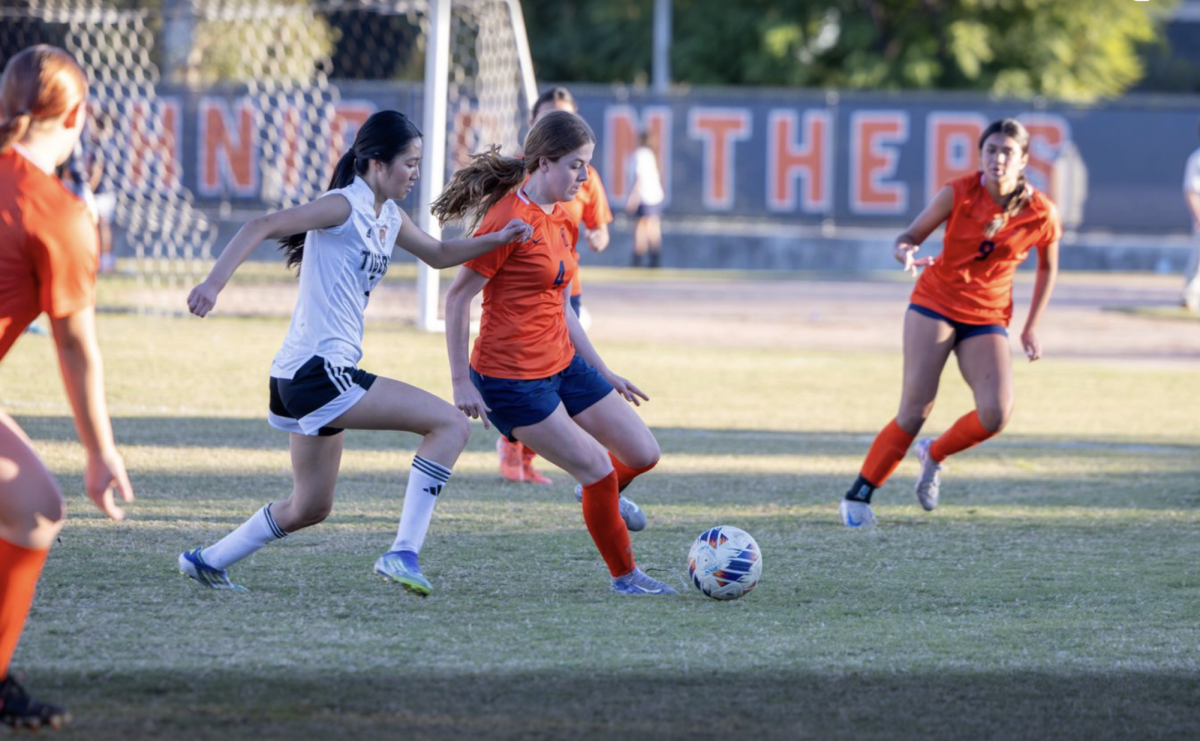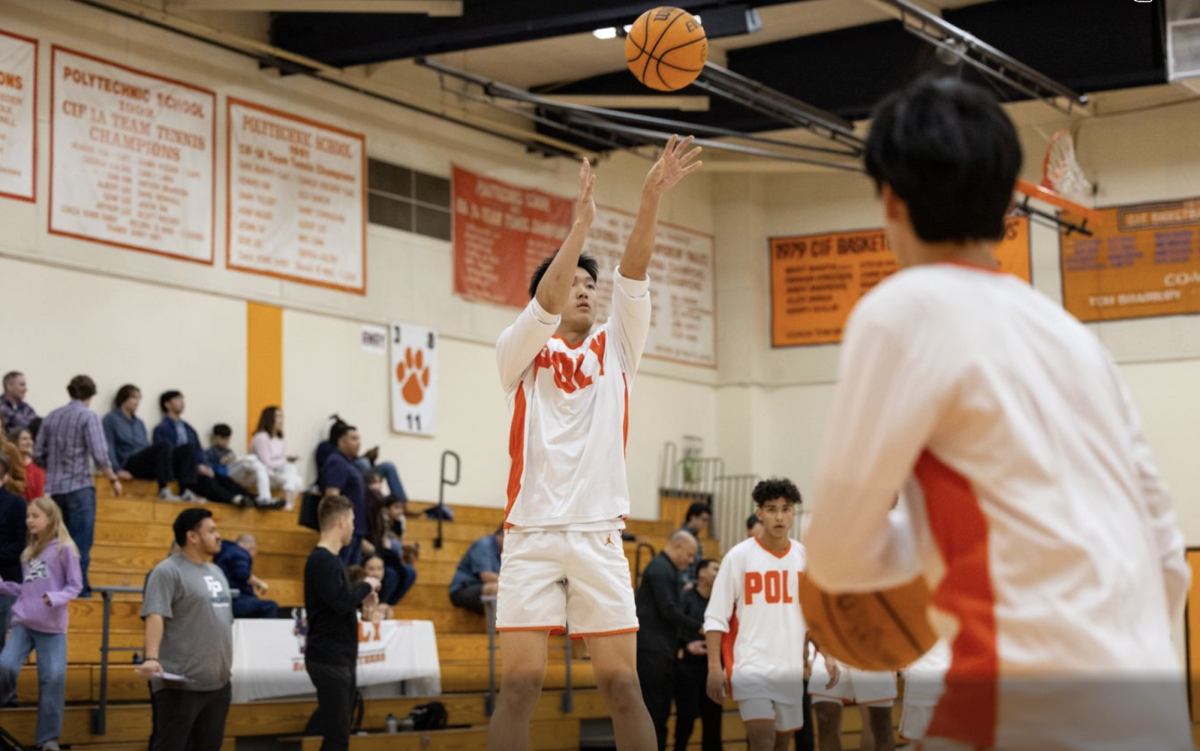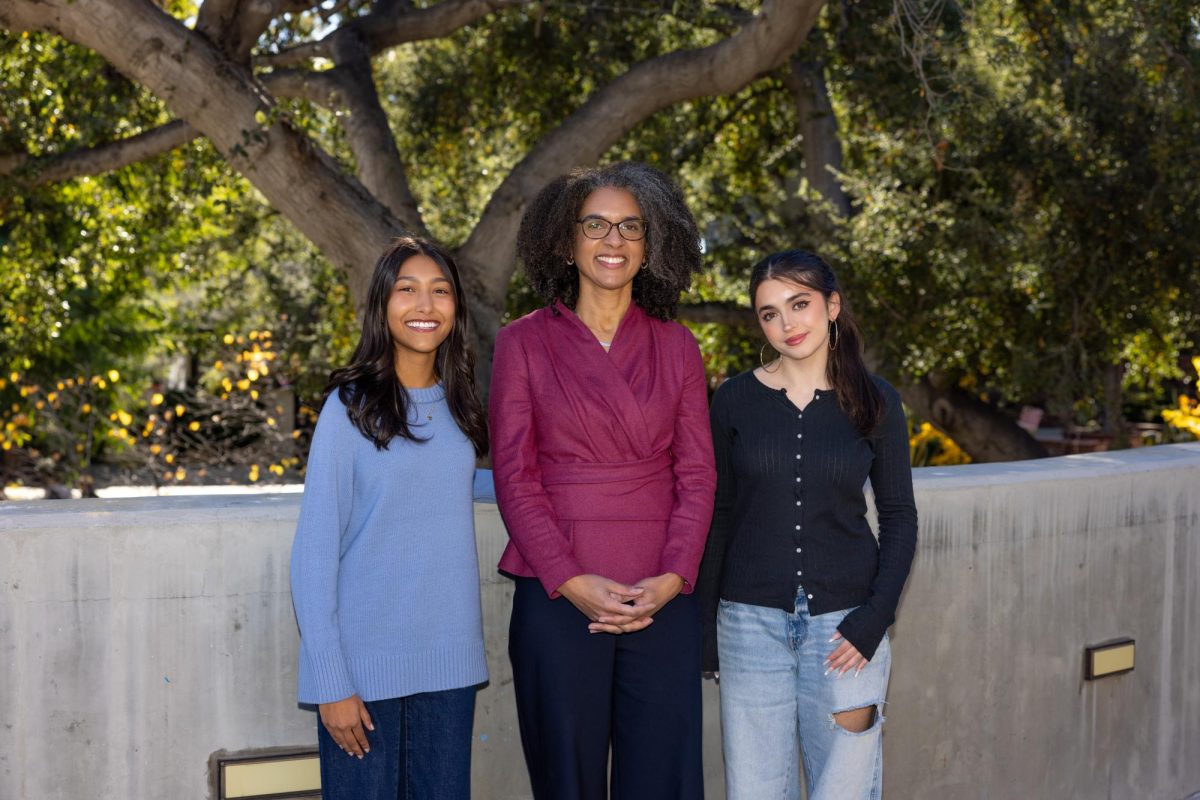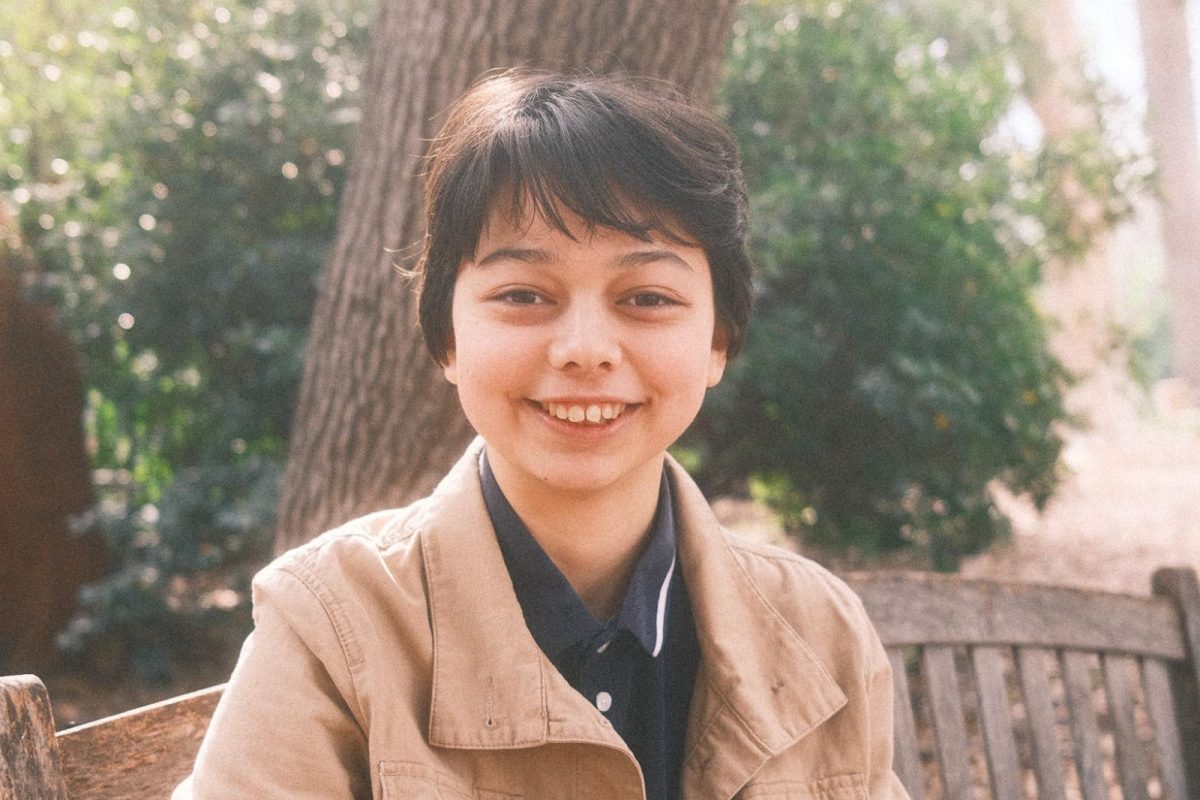Poly senior Ronen Peters can be found in public spaces, at informal jam sessions and on campus playing his fiddle. When he is not fiddling, Peters is clicking the shutter on his camera, dipping his paintbrush in acrylic or creating a serene watercolor landscape.
When Peters was young, his parents, who had both regretted quitting music at a young age, enrolled him in the Bloom School of Music in Eagle Rock. “Our classes were for little kids, and we would just mess around and bang on all sorts of instruments, like xylophones,” he recalled.
A pivotal moment came when a girl in his class left for a week and returned playing “Hot Cross Buns” on the violin.
“I thought it was the coolest thing ever,” he recalled.
Inspired by his classmate, Peters took up the violin and continued playing until seventh grade. Then, Peters shifted to the fiddle and began playing bluegrass music, a form of American roots music with origins in folk and country traditions. The fiddle and the violin are physically the same instrument, but “fiddle” is used to refer to the instrument when the musician plays folk music rather than classical. When asked about his favorite musical style, Peters said, “I do folk, so I play a lot of Cape Breton music.”
Cape Breton music originated from Irish immigrants living on the small Canadian island from which it gets its name. For a week last summer, Peters studied at a college of music in Cape Breton, playing the fiddle for upwards of five hours a day.
Peters attends competitions where he often plays American styles, including bluegrass. He shows incredible commitment to his music during competition weeks and spends hours practicing each day leading up to a competition.
At Poly, Peters has performed in Poly Arts Student Council’s Fifth Quarters, among other events. Although he has not been a part of an organized music group at Poly since playing in the Lower School Orchestra, that changed this year when he joined the Upper School’s Pit Orchestra.
“There’s not too much folk music here,” he explained. Through the chamber music program, which he and junior Matteo Mazzie recently founded, Peters plans to play Irish music with friends in the second semester.
For Peters, music is his way of taking a break from the stress of school work. At this point in his music career, it’s not a struggle for him to learn a new piece of music. Instead, finding time and motivation is the challenge. However, Peters still finds joy in learning music and—most importantly to him—in sharing his music with others. He often goes busking, i.e., performing in the street for tips. “Watching people come by and listen just for a second, watching their expressions and just seeing how music connects with people—that’s always been big for me,” Peters said.
He considers his music instructor, Sarah Murphy, a major role model. She shares two of Peters’s main interests, music and science, giving him someone to relate and look up to. He also cites many famous names in folk such as Stéphane Grappelli, Buddy MacMaster and Bill Monroe, as sources of inspiration.
While he has developed a deep admiration for folk music, Peters noted, “People in our generation, no one really enjoys folk music as much.”
Though he feels that classical music is more popular to play, he describes folk music as more approachable.
“There are stories associated with it, and it really can connect communities, so I’d like people to appreciate it,” he explained.
Although Peters plans to major in chemistry in college, he wants to continue playing folk music on the fiddle and hopes to meet others who play.
“One nice thing about folk music is that you can always find people everywhere you go that are playing in jams and sessions. Especially if you go to a major city, there’s always people,” he said. “Everyone I play with is over 50 years old at least, but it’s a good time. They’re really excited to see someone my age enjoying the music.”
He added, “I’m very open to a lot right now, so I’m excited to explore and see what I come to.”

